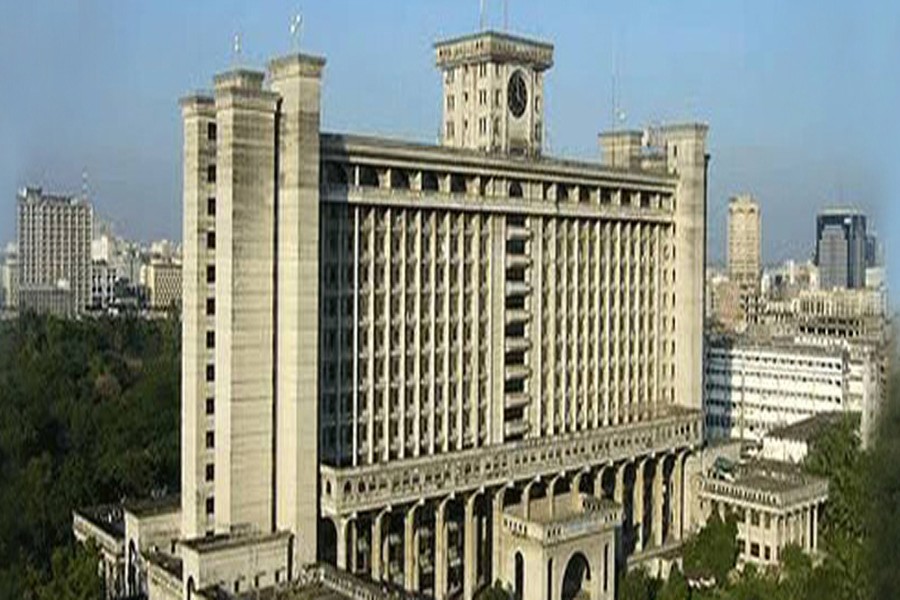There is hardly any point harping on the dismal performance of the city corporations all over the country, especially in the capital where as a surprise departure from standard practices in most countries, two separate city corporations are now in operation-unfortunately with little or no trace of improvement. Following the elections to the two city corporations in Dhaka city years back, it looked like the mayors-- young, energetic and passionate that they were-- would be up for some tangible improvements of the living conditions of the city-dwellers. Promises were aplenty, and despite the fear of being disillusioned, people in general held on to some hope for the better. That was not to be.
There was no change in the way things were running, albeit in utter chaos, especially in respect of some of the core problem areas where the mayors were pledge-bound to engage themselves with all the resources available. Water-logging, garbage-littered roads and alleys, unauthorised occupation of municipal lands, footpaths, parks, wet lands and the terrible traffic gridlocks that characterise life and living in the capital as essential appendages are far from loosening their ugly grip. True, the municipal corporations in the capital, as in all other cities and districts, are not the ones to call the final shots, as there are a dozen or so parent agencies which are supposed to look after these. Still, what could have been achieved from a well coordinated move through short and long-term planning didn't at all come by. Yes, there were drives, especially to keep the city clean and free the footpaths from vendors-- two areas where it was relatively less challenging to work on, but no sooner some noticeable improvements were found, the drive went lax, and things were all back to square one. For months the two city corporations haven't uttered a word about what went wrong with their much drummed-up drives. One may not perhaps be wrong to conclude that they have resigned to the impossibility of making things possible in an impossible situation!
The reason the city corporations are ineffective in most of their functions, especially those requiring help of law enforcement agencies and coordination with other government bodies, is often attributed to the lack of legal mandate or authority to go all out to accomplish those. But this again doesn't suffice to explain why the dirt-ridden city can't be rid of rubbish and garbage by thousands of cleaners who are on the payroll of the city corporations. Despite their appalling performance, the city corporations are ever hungry to raise their revenues by taxing the people - irrationally for the most part. The recent rise in the holding tax is a glaring example.
The city corporations in the big cities are mainly to address what may be called the perils of urbanisation. As more and more people are migrating to the cities for better sources of livelihood, the problem is becoming increasingly complex and multifaceted, and the city corporations' inability to ease out those have made things hopelessly sickening. Experts at an international conference held in the capital recently stressed the need for providing the city corporations and municipalities with more resources and authorities to ensure planned and sustainable urbanisation.
Organised by the World Bank Mr. Balakrishna Parameswaran, lead Urban Specialist of the WB said in the conference, "Urbanisation's missed opportunity impacts poverty level." In order to address this, he called upon all concerned for more authority of the city mayors to strengthen them, equip them with more resources and hold them accountable. The WB specialist emphasised visionary leadership, informed and thoughtful planning along with practical investment as well as participation and involvement of citizens in planned and sustainable development of urban areas.
If lack of resources and authority is the main roadblock for the municipal corps to function, as mentioned by the speakers at the aforementioned conference, the key issue is how to go about strengthening them. One thing is clear-- it is because of the lack of authority that our municipal bodies are not held accountable for their lapses and repeated failures. Again, empowering them with total control in all their activities is most likely to impinge on the legal authority of other agencies. In such a situation, a mechanism has to be evolved to ensure that coordination is the number one prerequisite. Urban experts will not disagree that in order to make such efforts successful, there should be a legal framework under which concerned agencies, including the city corps, would chalk out their plans in a harmonious manner. Will the government ask the agencies to initiate developing a mechanism suitable to all?


